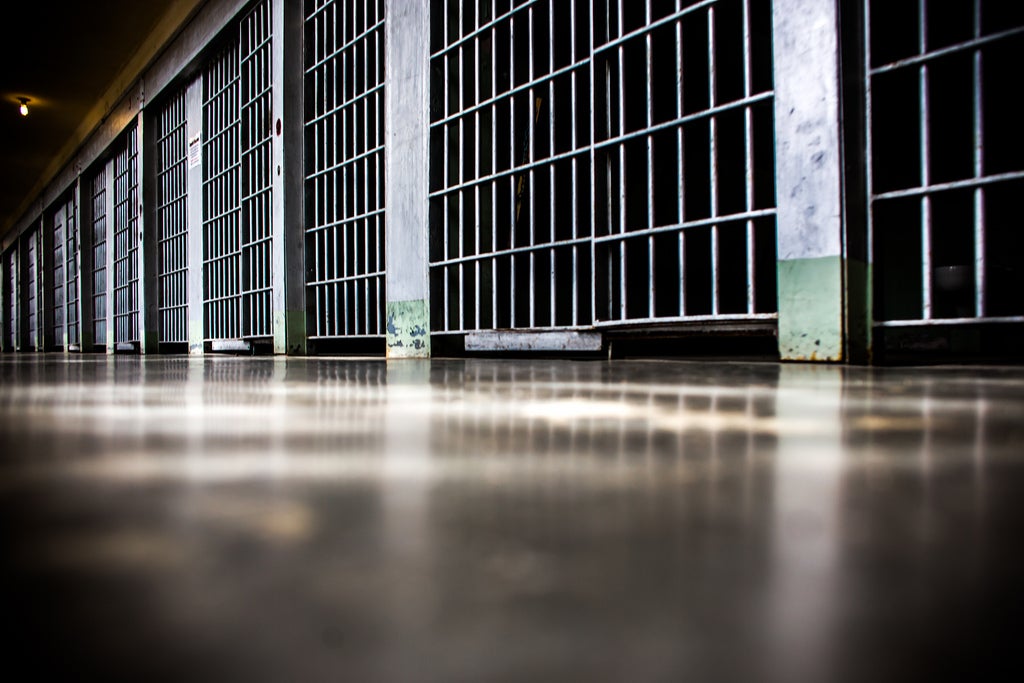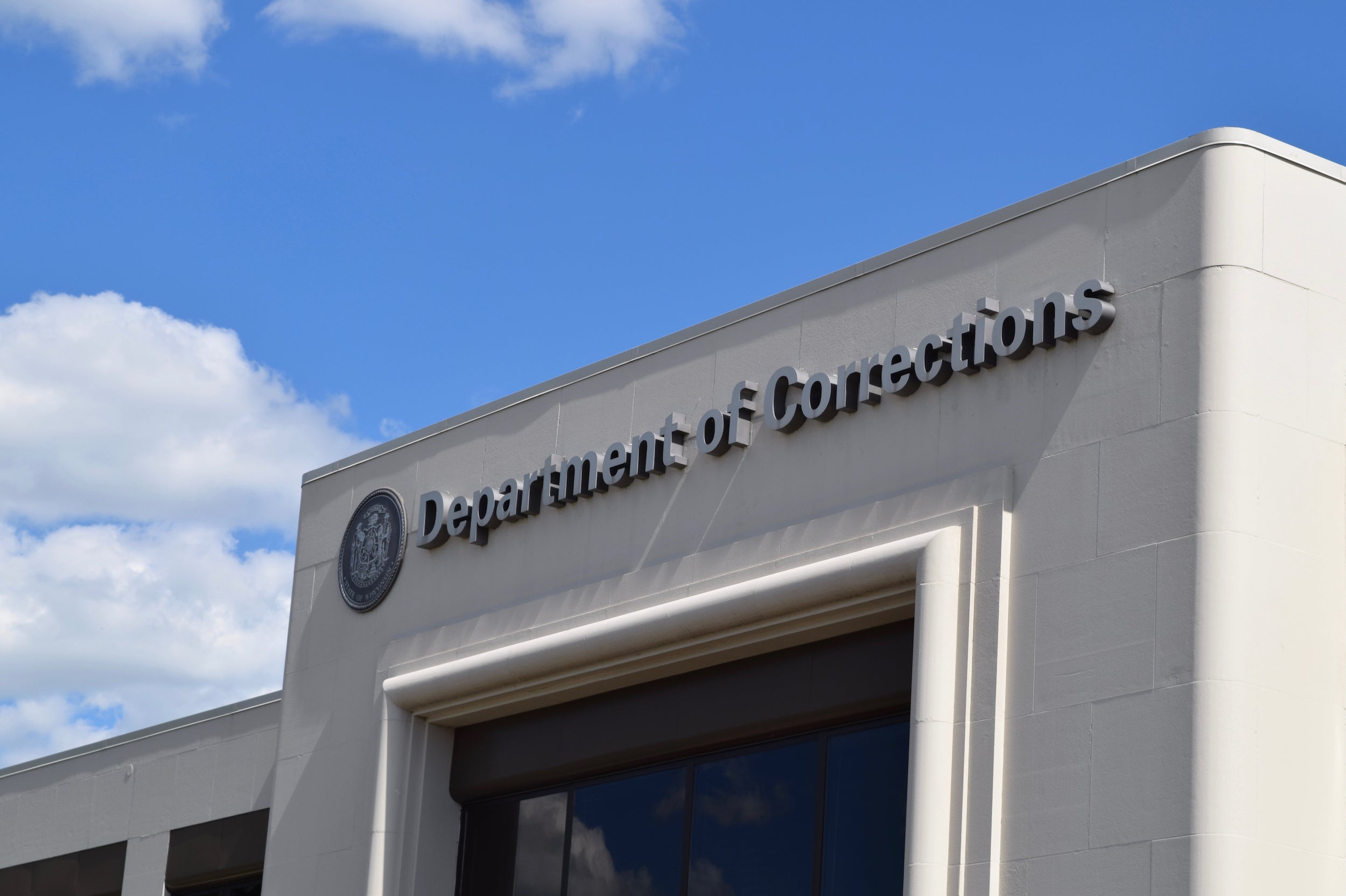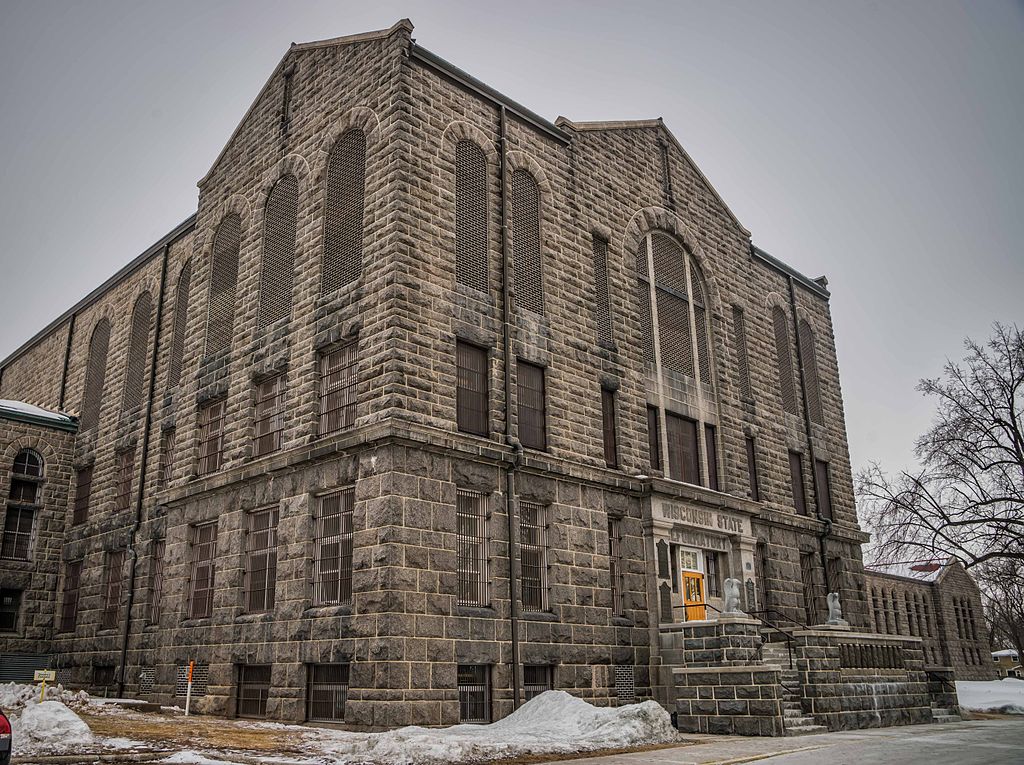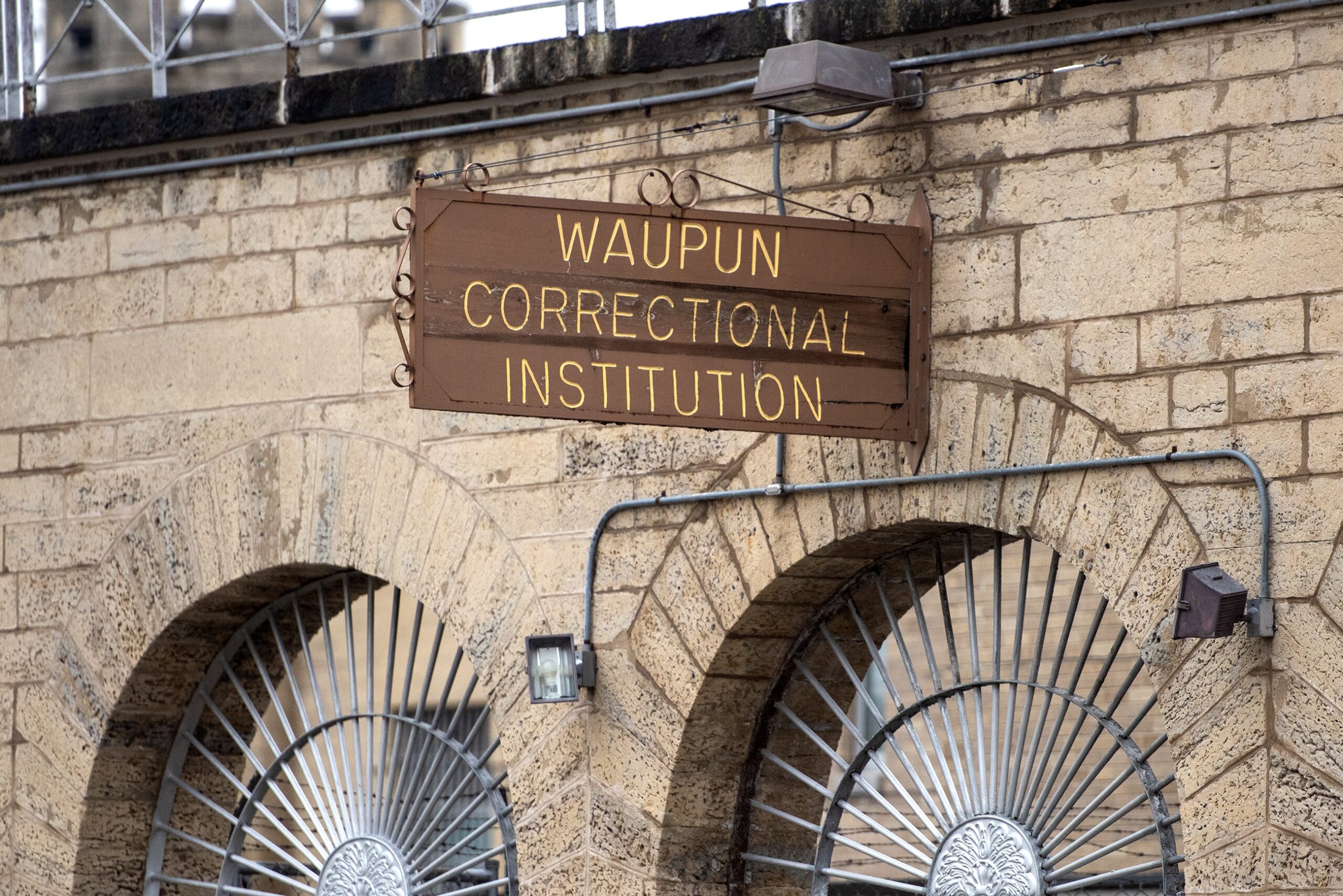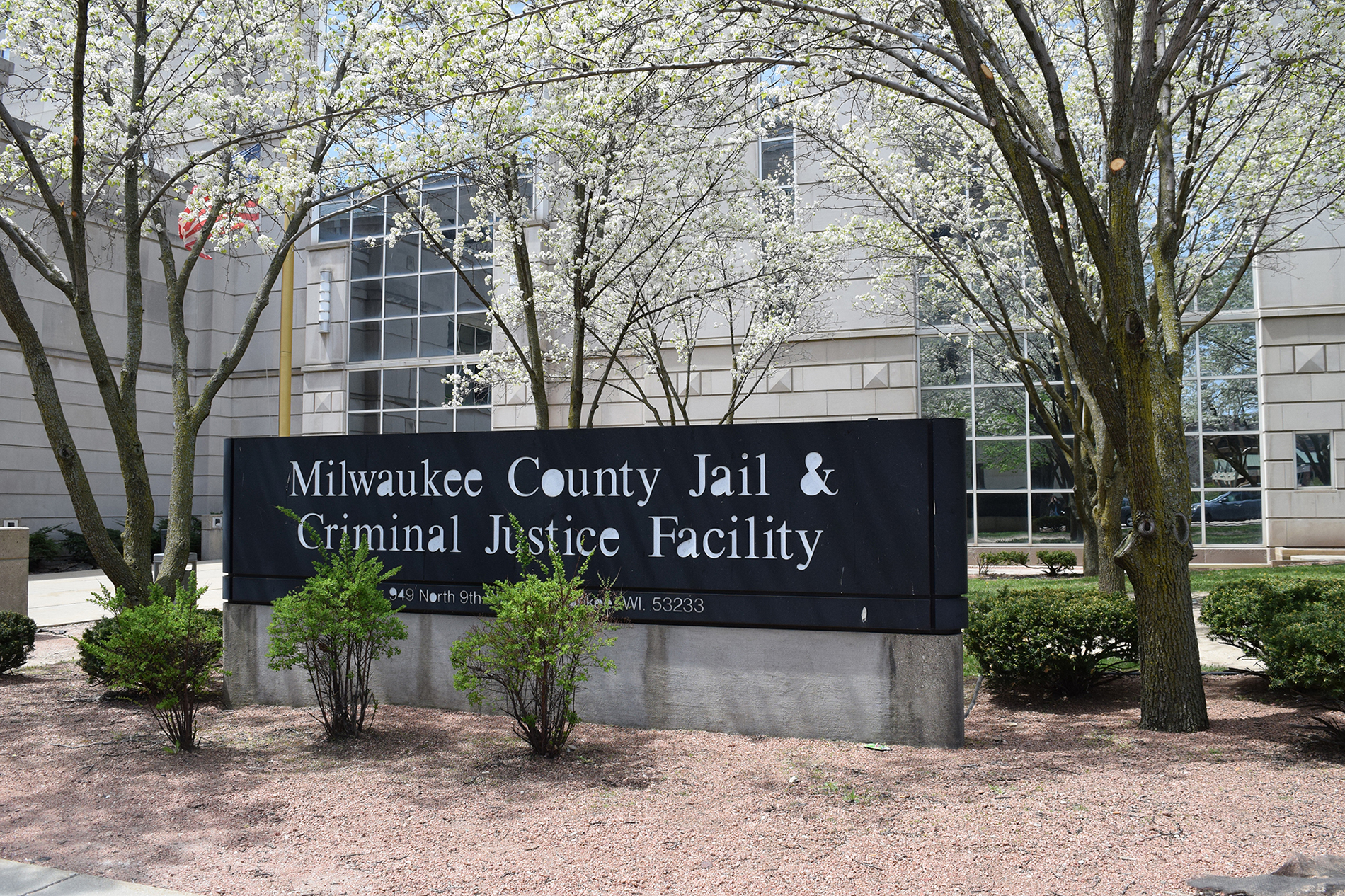For Rebecca Aubart, keeping in touch with her incarcerated husband has come at a cost.
She said she racked up thousands of dollars in charges for phone and video calls during his five-month stint in the Polk County Jail in 2022.
“I didn’t have the money — I had to put all this money on credit cards,” Aubart said. “I’ve watched my life savings and everything be washed away, mostly by these huge fees.”
Stay informed on the latest news
Sign up for WPR’s email newsletter.
Aubart welcomes recently-approved changes from the Federal Communications Commission, which will cap charges imposed on people calling to and from jails and prisons.
The rules take effect in January for prisons and large jails, and in April for medium and small-sized jails. They’ll limit per-minute call charges for prisons and larger jails at no more than 6 cents per minute, down from an existing cap of 14 cents.
The smallest jails will be allowed to charge no more than 12 cents per minute for phone calls. Currently, those small facilities can charge up to 21 cents every minute.
And, for the first time ever, the FCC is capping rates for video calling. Those interim rates will allow prisons to charge no more than 16 cents a minute for video communication, while very small jails will be allowed to charge up to 25 cents a minute. Eventually, FCC officials said they plan to replace the interim rules for video calling with permanent regulations.
Charges imposed by jails vary widely across Wisconsin
Currently, Polk County charges people 21 cents a minute for jail phone calls, according to the website of its vendor Securus. The Polk County Sheriff’s Office did not respond to emailed questions from WPR.
Farther south, the La Crosse County jail offers two free 20-minute phone calls a week but charges 21 cents a minute after that, the jail’s Capt. Jim Verse wrote in an email. Video visitation there costs $6.95 for 20 minutes or $13.90 for 40 minutes, Verse said.
The Dane County jail currently charges 14 cents a minute for phone calls and 25 cents a minute for video calls. Those per-minute rates will fall to 7 cents for phone calls and to 12 cents for video calls once the regulations take effect, sheriff’s office spokesperson Elise Schaffer said.
Regulations nix add-on fees, impacting Wisconsin state prisons
At Wisconsin’s state prisons, the new caps will not have an effect on per-minute phone fees, Department of Corrections spokesperson Beth Hardtke said.
That’s because Wisconsin’s adult prisons currently bill 6 cents a minute for phone calls through its vendor IC Solutions, which is already at the threshold set by the new regulations.
Nonetheless, the new rules are expected to lower costs for Wisconsin prisoners in other ways.
Among other restrictions, the latest regulations eliminate most types of add-on fees. IC Solutions, for instance, charges a $3 processing fee for adding money to an account that’s needed to communicate with an inmate.
But, as of 2025, that type of fee will be illegal.
Wanda Bertram of the Prison Policy Initiative notes that, while there are a handful of companies that contract with prisons and jails for phone calls, incarcerated people don’t have a choice about which provider they’ll use.
“For decades at this point, people who are in prison or in jail and their loved ones have been charged rates and charges that you and I would be pretty surprised and shocked by if they appeared on our phone bill,” Bertram said.
Research from the Prison Policy Initiative found that, in 2021, a 15-minute phone call from a local jail in Wisconsin cost $3 on average. That was roughly in line with the national average, and included add-on fees.
FCC cracks down on site commissions that give facilities ‘kickbacks’
So-called commission site payments have been a major driver of high costs of phone calls from prison and jails, Bertram said.
That longstanding practice has allowed facilities to receive payments from the vendors that they contract with for phone and video calls.
“Companies began to offer what’s known in the lingo as site commissions, (which) really means kickbacks for prisons and jails that sign contracts with them,” Bertram said. “So we’ve seen companies paying well over 50 percent of total revenues to local governments and to departments of corrections, and they do this because they want to get contracts.”
But the latest rules bar those commissions in most cases.
A contract obtained by the Prison Policy Initiative in 2021 shows that, under its agreement with Securus, Polk County got a 44 percent site commission.
Aubart believes that payment creates a problematic incentive, by encouraging jails to charge people more for talking to their loved ones.
“I would argue that they’re stealing money from families,” she said.
Within the state prison system, two-thirds of commission money goes to Wisconsin’s Department of Administration and one-third goes to services that “directly benefit” incarcerated people, a DOC spokesperson said.
Last fiscal year, IC Solutions paid the state nearly $6.3 million in commission revenue, including $2.1 million that went to the DOC.
Calls to and from Wisconsin’s juvenile prisons cost one cent a minute, and IC Solutions keeps all of that revenue. For adult phone calls, the DOC gets a four cent commission from each 6 cents charged per minute.
The DOC puts its share of commission revenue to a wide variety of services for inmates, including providing free stamped envelopes, movie streaming subscriptions, bus tickets and ADA accommodations, according to a department spokesperson.
Additionally, DOC officials said they use Wisconsin’s commission to subsidize the cost of video calls. At present, IC Solutions charges $5 for a 25-minute video call, but the DOC covers half that cost, so inmates are charged $2.50 per video session.
It’s not yet clear how the new rules eliminating commissions will affect video calling charges in state prisons, according to the DOC.
“The Department of Corrections is still studying the FCC’s new rules to fully understand their impact,” Hardtke wrote in an email.
Phones calls are a lifeline to rehabilitation, people impacted by incarceration said
Over the last decade, federal regulators have been attempting to crack down on phone call costs for incarcerated people. The current rate caps resulted from an FCC order issued in 2021, and will be replaced by the latest order adopted in July.
Jean-Michel Delonget now works as an engineering CAD administrator after getting an education while behind bars. He was released to extended supervision in January after spending two decades in Wisconsin prisons.
He said phone call rates were especially steep during the earlier periods of his incarceration. He recalled watching his peers save up for phone calls using their earnings from prison jobs that paid below minimum wage. Sometimes, he said, that meant skipping out on buying essentials from the commissary.
“A lot of us would just plan accordingly and just save up and make a phone call once in a while,” he said. “If you’re a person who doesn’t have support on the outside … basically, you opt out of toothpaste and shampoo and make a phone call that week.”
Most people incarcerated in Wisconsin will eventually be released, and Randy Forsterling said community ties are essential to easing that transition.
“I’ve witnessed numerous times where guys are getting into with their girlfriend or their wife or their family members about, ‘Hey, I need you to put money on the phone, I can’t call,”‘ said Forsterling, who is now on community supervision after serving time in Wisconsin prisons. “It creates a lot of strain and stress on those relationships, and it all plays a role into whether or not somebody is going to get out and be successful or not.”
Aubart sees phone calls to her husband as a vital support system. She tries to call him every day, a routine she started while he was locked up in Polk County.
He’s now at Wisconsin’s Chippewa Valley Correctional Facility, a minimum-security facility that’s designated for substance abuse rehabilitation, after he was transferred from the Stanley state prison earlier this year.
During their phone calls, Aubart reads him materials that she gets from Narcotics Anonymous. She said that’s been necessary because treatment options are limited within the prison system.
“It’s very hard to get into any kind of programming,” she said. “And it was just really disturbing to us to see that we’re basically just warehousing people in Wisconsin for extreme amounts of time.”
Wendy Heredia said she used to spend close to $100 a week, keeping in touch with her partner while he was incarcerated.
Her now-husband was paroled in 2022 after spending more than 20 years in state prisons.
She’s seen first-hand how incarcerated people rely on phone calls to keep in touch with their attorneys and their families.
Often, she said, it’s their only source of hope.
“They live through you — I hear this all the time from incarcerated people,” she said. “They want to know what you did on the weekend. They want to know, did you do that camping trip? Did you go to the family reunion? Who was there? Because after the phone call has ended, they go back to their room and they almost re-live it in their minds.”
Editor’s note: This story has been updated with corrected information about the cost of video calls from Wisconsin state prisons.
Wisconsin Public Radio, © Copyright 2025, Board of Regents of the University of Wisconsin System and Wisconsin Educational Communications Board.
